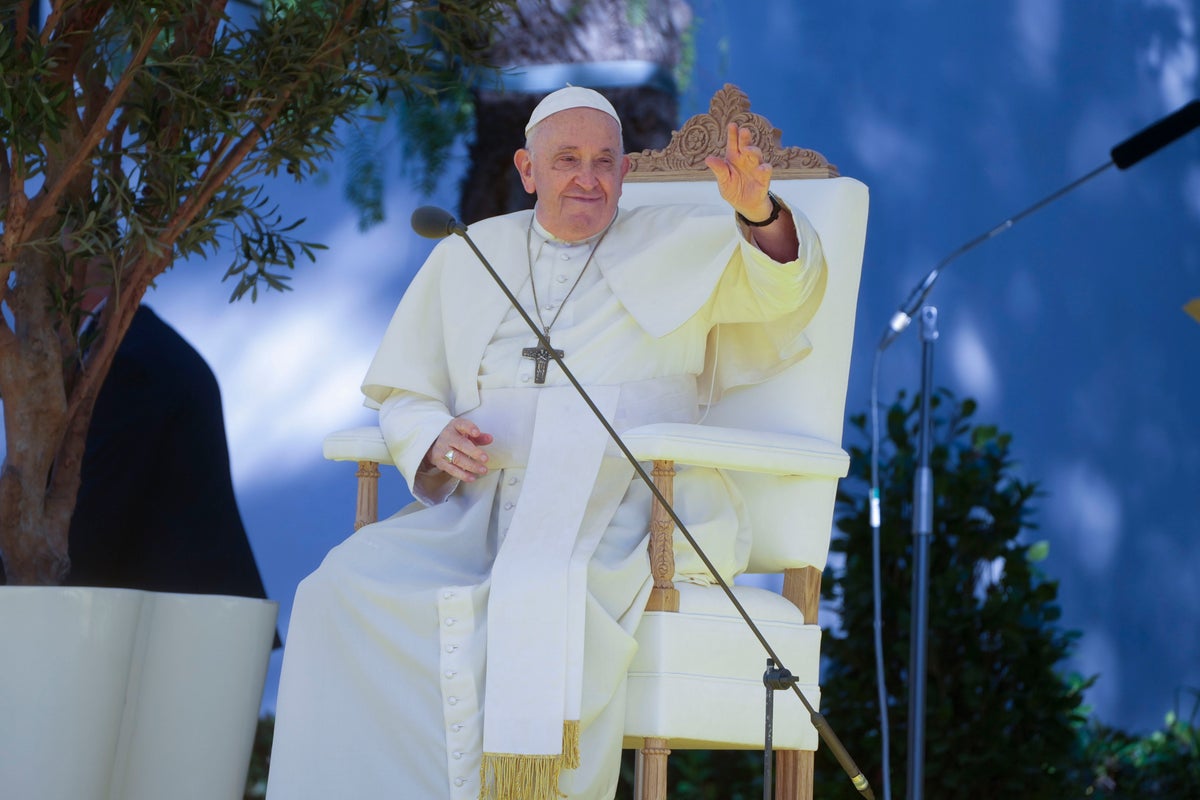
Pope Francis challenged university students on Thursday to make the world a more just and inclusive place, as he focused the second day of his Portugal trip on inspiring young people to use their privilege to combat global warming and economic inequalities.
Francis received a warm welcome at the Catholic University, one of Portugal’s top institutions of higher learning, where students broke into periodic papal chants under an already bright sun on the central Lisbon campus.
After the event, Francis was heading to the seaside town of Cascais to visit the local branch of his Scolas Occurrentes foundation, a movement he founded years ago to bring young people from different backgrounds and nationalities together.
Francis is in Lisbon through the weekend to attend World Youth Day, the big Catholic jamboree that St. John Paul II launched in the 1980s to encourage young Catholics in their faith. Francis has picked up John Paul’s mantle with gusto as he seeks to inspire the next generation to rally behind his key social justice, economic and environmental priorities.
In his remarks Thursday, Francis urged the students to take risks and reject the temptation to merely perpetuate the status quo — the “present global system of elitism and inequality” — with an attitude of self-preservation.
“An academic degree should not be seen merely as a license to pursue personal well-being, but as a mandate to work for a more just and inclusive — that is, truly progressive — society,” he said.
Francis urged the students to instead use the privilege of their education to work for the common good, especially in caring for the environment, the poor and marginalized. He said that current promises to curb global warming have amounted to mere “halfway measures (that) simply delay the inevitable disaster.”
“Yours can be the generation that takes up this great challenge. You have the most advanced scientific and technological tools, but please, avoid falling into the trap of myopic and partial approaches,” he said.
“We need to align the tragedy of desertification with that of refugees, the issue of increased migration with that of a declining birth rate, and to see the material dimension of life within the greater purview of the spiritual."
Rather than polarized approaches, Francis said, "We need a unified vision, a vision capable of embracing the whole.”







